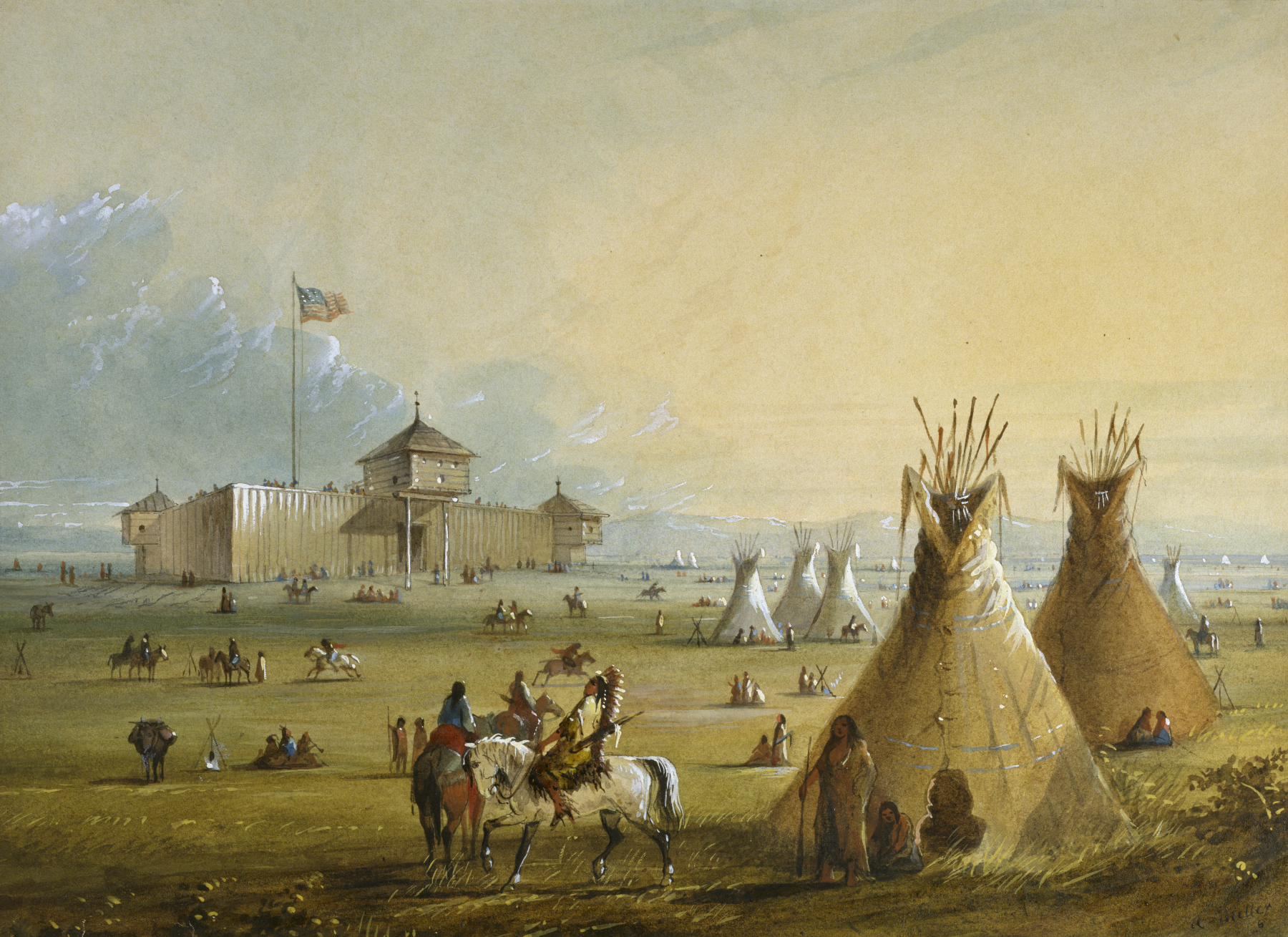American frontier
 The American frontier, also known as the Old West, and popularly known as the Wild West, encompasses the geography, history, folklore, and culture associated with the forward wave of American expansion in mainland North America that began with European colonial settlements in the early 17th century and ended with the admission of the last few contiguous western territories as states in 1912. This era of massive migration and settlement was particularly encouraged by President Thomas Jefferson following the Louisiana Purchase, giving rise to the expansionist attitude known as "manifest destiny" and historians' "Frontier Thesis". The legends, historical events and folklore of the American frontier, known as the frontier myth, have embedded themselves into United States culture so much so that the Old West, and the Western genre of media specifically, has become one of the defining features of American national identity.
The American frontier, also known as the Old West, and popularly known as the Wild West, encompasses the geography, history, folklore, and culture associated with the forward wave of American expansion in mainland North America that began with European colonial settlements in the early 17th century and ended with the admission of the last few contiguous western territories as states in 1912. This era of massive migration and settlement was particularly encouraged by President Thomas Jefferson following the Louisiana Purchase, giving rise to the expansionist attitude known as "manifest destiny" and historians' "Frontier Thesis". The legends, historical events and folklore of the American frontier, known as the frontier myth, have embedded themselves into United States culture so much so that the Old West, and the Western genre of media specifically, has become one of the defining features of American national identity.== Periodization ==
Historians have debated at length as to when the frontier era began, when it ended, and which were its key sub-periods. For example, the Old West subperiod is sometimes used by historians regarding the time from the end of the American Civil War in 1865 to when the Superintendent of the Census, William Rush Merriam, stated the U.S. Census Bureau would stop recording western frontier settlement as part of its census categories after the 1890 U.S. Census. His successors however continued the practice until the 1920 Census.
Others, including the Library of Congress and University of Oxford, often cite differing points reaching into the early 1900s; typically within the first two decades before American entry into World War I. A period known as "The Western Civil War of Incorporation" lasted from the 1850s to 1919. This period includes historical events synonymous with the archetypical Old West or "Wild West" such as violent conflict arising from encroaching settlement into frontier land, the removal and assimilation of natives, consolidation of property to large corporations and government, vigilantism, and the attempted enforcement of laws upon outlaws.
In 1890, the Superintendent of the Census, William Rush Merriam stated: "Up to and including 1880 the country had a frontier of settlement, but at present the unsettled area has been so broken into by isolated bodies of settlement that there can hardly be said to be a frontier line. In the discussion of its extent, its westward movement, etc., it can not, therefore, any longer have a place in the census reports." Despite this, the later 1900 U.S. census continued to show the westward frontier line, and his successors continued the practice.